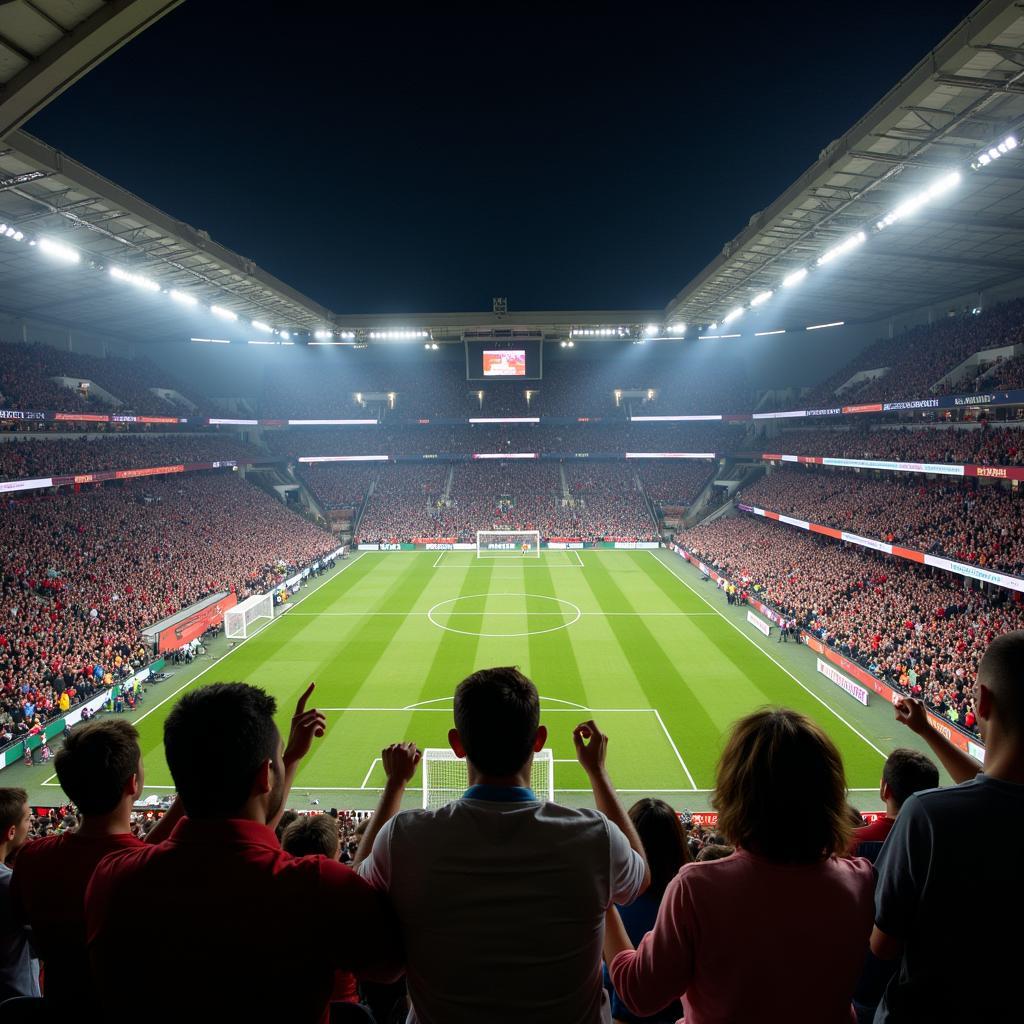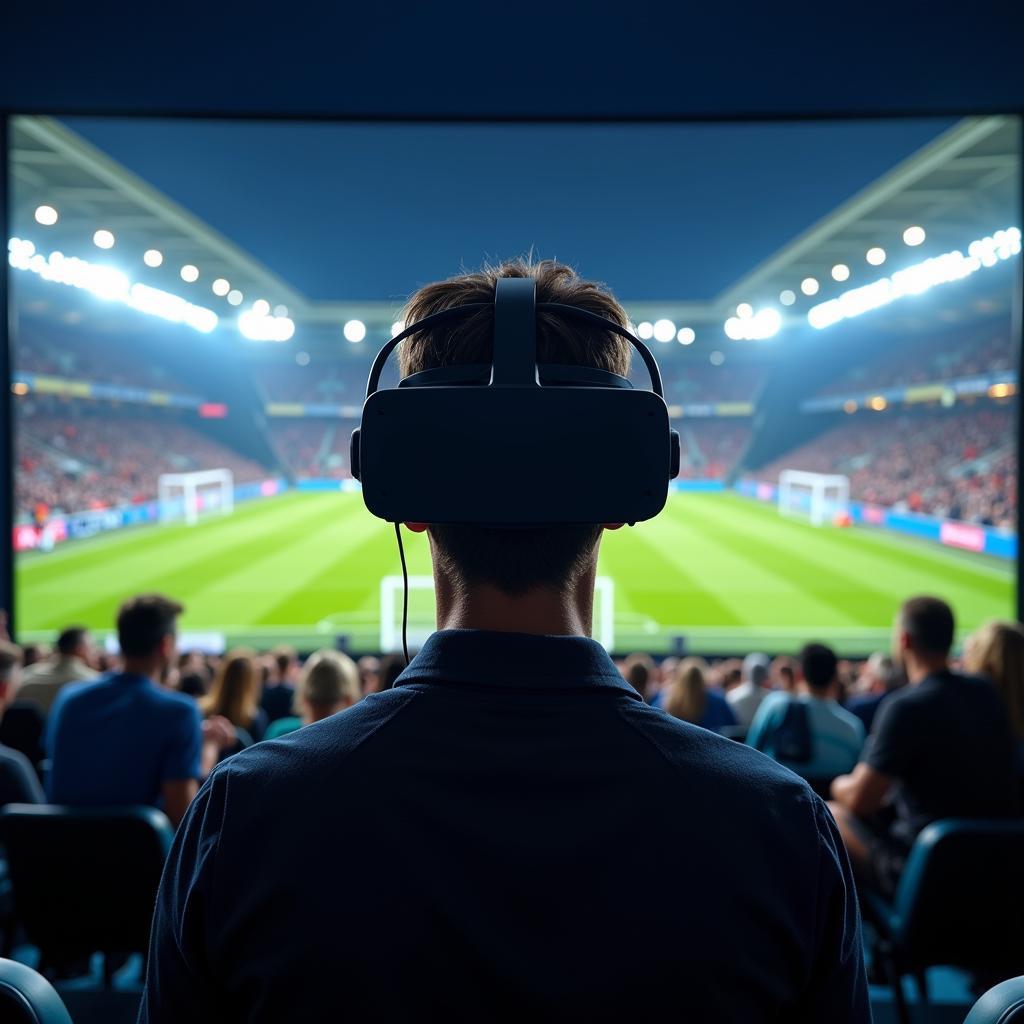Every two years sport fans worldwide collectively hold their breath, glued to screens and stadiums, as international competitions captivate the globe. Whether it’s the FIFA World Cup, the UEFA European Championship, or the Olympics, these events offer a unique blend of athleticism, national pride, and global camaraderie. These biennial events, while different in nature, offer a similar thrill and anticipation, drawing in viewers from every corner of the world.
The Pull of International Sporting Events
These mega-events are more than just games; they are cultural phenomena. They offer a shared experience, a collective narrative that transcends geographical and cultural boundaries. Every two years, sport fans find themselves united, sharing in the victories and commiserating in the defeats of their chosen teams. The drama unfolds, creating unforgettable moments and lasting memories. What makes these events so compelling? Is it the sheer scale of the competition? The display of exceptional talent? Or perhaps the sense of belonging to something bigger than oneself?
The Allure of the Underdog
One of the most captivating aspects of these biennial competitions is the potential for unexpected upsets. Everyone loves a Cinderella story, and these events often provide the perfect stage for underdogs to shine. Smaller nations, often overlooked, have the chance to prove themselves against the established giants, creating moments of pure sporting magic. These underdog stories resonate deeply with fans, reminding us that anything is possible.
These moments, etched into the collective memory of sport fans, become part of the rich tapestry of sporting folklore. They remind us why we watch, why we cheer, and why, every two years, we find ourselves drawn back to these global spectacles.
The Impact on Fans: More Than Just a Game
The influence of these large-scale sporting events extends far beyond the playing field. They inspire a sense of national unity, bringing people together in shared celebration and support. They also have a significant economic impact, boosting tourism and generating revenue for host countries. Moreover, these events can act as catalysts for social change, raising awareness about important issues and promoting inclusivity.
The Emotional Rollercoaster
For fans, these tournaments are an emotional rollercoaster. The highs of victory are exhilarating, while the lows of defeat can be crushing. This emotional investment is part of what makes these events so compelling. Every two years, fans willingly subject themselves to this emotional ride, knowing that the potential rewards are worth the risk of heartbreak.
 Fans Reacting to a Goal
Fans Reacting to a Goal
These events ignite passion, spark debate, and create lasting memories. They offer a shared experience that connects people across continents, reminding us of the power of sport to unite and inspire.
The Future of Biennial Sporting Events
As the world becomes increasingly interconnected, the importance of these global sporting events is likely to grow. They provide a platform for cultural exchange, fostering understanding and promoting peace. They also offer a unique opportunity to showcase the best of human athleticism and the power of human spirit.
Adapting to a Changing World
In the face of evolving technology and changing viewing habits, these events must continue to adapt and innovate to remain relevant and engaging for future generations of sport fans. This includes embracing new media platforms, creating interactive experiences, and finding new ways to connect with fans on a deeper level.
 Future of Sports Viewing – VR Experience
Future of Sports Viewing – VR Experience
Every two years, sport fans around the globe come together to celebrate the human spirit and the power of competition. These biennial events offer a unique blend of athleticism, drama, and shared experience, reminding us of our shared humanity and our collective love for the beautiful game.
Conclusion
Every two years, sport fans experience a unique global connection through major sporting events. These competitions are more than just games; they are cultural touchstones that bring people together, inspire national pride, and create lasting memories. As we look to the future, these biennial rituals will continue to evolve, adapting to a changing world while retaining their core appeal: the power to unite and inspire.
FAQ
- What are some examples of major biennial sporting events?
Some major biennial sporting events include the FIFA World Cup, the UEFA European Championship, and various world championships for other sports.
- Why are these events so popular?
These events are popular due to the high level of competition, national pride, and the shared experience they create.
- How do these events impact the host country?
Hosting these events can boost tourism, generate revenue, and enhance a nation’s global image.
- What is the role of technology in the future of these events?
Technology will play a crucial role in enhancing the viewing experience and creating more interactive ways for fans to engage.
- How do these events promote unity?
These events bring people together from all walks of life to support their teams and celebrate the spirit of competition.
- Why do fans continue to watch despite the emotional rollercoaster?
Fans continue to watch because the highs of victory and the shared experience outweigh the potential lows of defeat.
- What makes these biennial events different from annual ones?
Biennial events often hold a greater sense of anticipation and build-up, creating a unique level of excitement.
For any further support, please contact us at Phone Number: 0903426737, Email: fansbongda@gmail.com or visit our address: Tổ 9, Khu 6, Phường Giếng Đáy, Thành Phố Hạ Long, Giếng Đáy, Hạ Long, Quảng Ninh, Việt Nam. We have a 24/7 customer support team.


